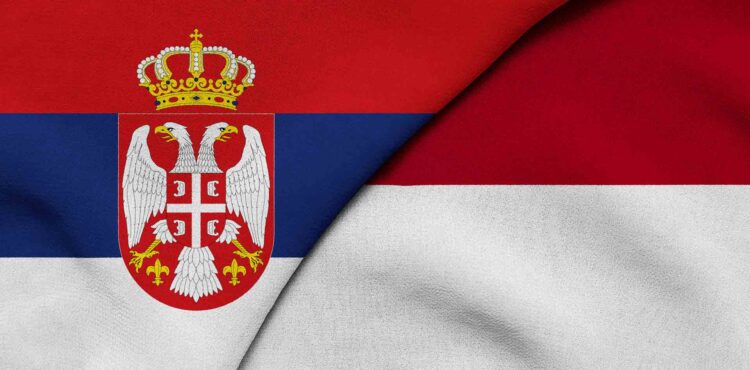Rich bilateral program of our state-religious delegation to Indonesia
On October 24, 2013 Serbian state-religious delegation continued its official visit to friendly Indonesia on the occasion of the second bilateral interfaith dialogue between the two countries.
The members of our delegation visited the Sharif Hidayatullah State Islamic University. They were received by the Rector Prof Dr Komaruddin Hidayat who said that he remembered every day of his visit to Belgrade in 2011 when he was the member of a state-religious delegation at the first bilateral interfaith dialogue between Serbia and Indonesia. Hidayat said that the Sharif Hidayatullah University is the leader in higher education in Indonesia with 22,000 students attending ten faculties. The Rector explained that this University had a lot of foreign students, lecturers and researchers. Hidayat said that Sharif Hidayatullah State Islamic University was ready to accept one teacher and five to ten students from Serbia in the next school year.
On behalf of our delegation the Rector was greeted by Mileta Radojevic, Director of the Office for Cooperation with Churches and Religious Communities. Radojevic said that their interfaith dialogue was a good starting point for intensifying the cooperation between our countries. The director added that he hoped the students exchange between Serbia and Indonesia would be enhanced.
The students were addressed by the Ambassador of Indonesia to Serbia H.E. Samuel Samson, Serbian Ambassador to Indonesia, H.E. Jovan Jovanovic and Rector Komarudin Hidayat, who spoke about deepening the historical relations between Belgrade and Jakarta and interfaith dialogue as one of the ways to success. Ambassador Samson said that the third interfaith dialogue between Serbia and Indonesia could be between students and youth.
The lectures at the Sharif Hidayatullah State Islamic University were held by the Vice Dean for Science at the Faculty of Orthodox Theology in Belgrade Prof Dr Dragomir Sando, Belgrade Mufti Muhamed Jusufspahic and the Chairman of the Association of Serbian-Indonesian Friendship “Nusantara” Aleksandar Rakovic, coordinator of both interfaith dialogues between the two countries. All three speakers spoke about the Serbian experience in developing religious harmony.
Our state-religious delegation visited Muhammadiyah Islamic organization which is responsible for primary, secondary and higher education in Indonesia. Senior Advisor at Muhammadiyah Sudibyo Markus said that the organization hah 133 faculties and had developed cooperation around the world, also having a regional canter in Plovdiv in Bulgaria. Marcus invited students from Serbia to continue their education at the faculties of Muhammadiyah.
At Muhammadiyah Serbian Patriarch Irinej said that Serbian was proud of its friendship with Indonesia. His Holiness noted that “warm smiles of Indonesians reflect their mood.” Patriarch informed the hosts that in 2013 Christian world celebrated 1,700 years of the Edict of Milan which guaranteed religious freedom in the Roman Empire. The rights of Christians are now violated in Kosovo and Metohija and Patriarch Irinej thanked Indonesia for “not recognizing the violent secession of a part of Serbia – Kosovo and Metohija, the cradle of history, culture and spirituality of the Serbian people.” Patriarch Irinej and director Radojevic briefly explained the nature of the Balkan crisis and the breakup of Yugoslavia to their hosts.
Eventful day for our delegation was completed by a mass at the Roman Catholic Cathedral in Jakarta served by the Archbishop of Belgrade Stanislav Hocevar. Monsignor Hocevar was received by Archbishop Ignatius Suharyo Hardjoatmodjo.
At the very end, the Serbian delegation visited Baznas, the state institution which is in charge of Muslims’ social issues. The guests were received by the Secretary-General Fuad Nassar, who spoke about the activities of this organization. Nasar got interested in the way the Serbian Orthodox Church and the Islamic Community of Serbia deal with social issues. Patriarch Irinej and Mufti Muhammad Jusufspahic spoke about this. Patriarch drew attention to a particularly difficult position of Orthodox clergy in Kosovo, while Mufti Jusufspahic pointed out that the self-proclaimed independence of Kosovo is a political and certainly not a religious issue.












